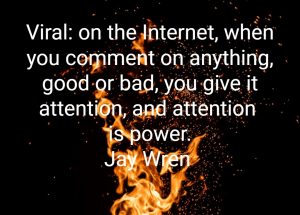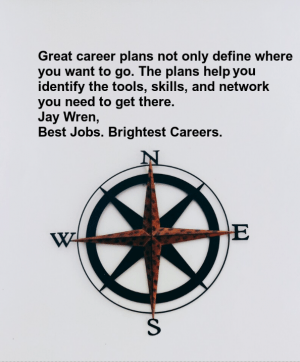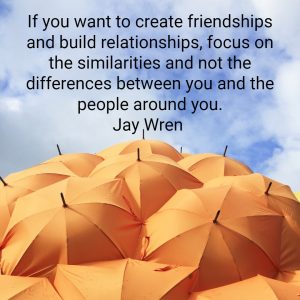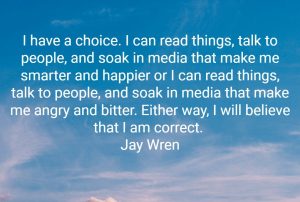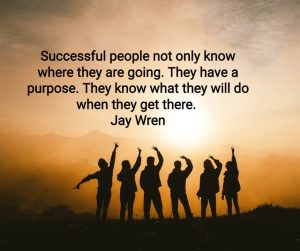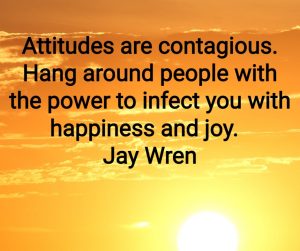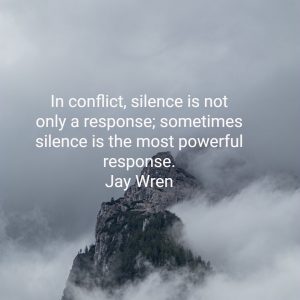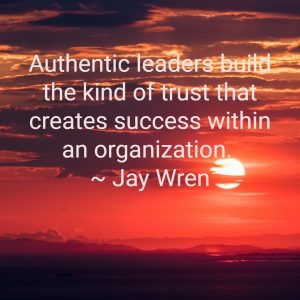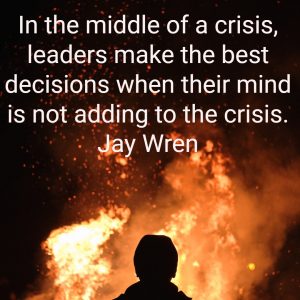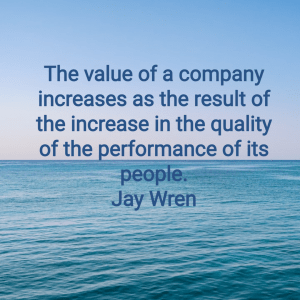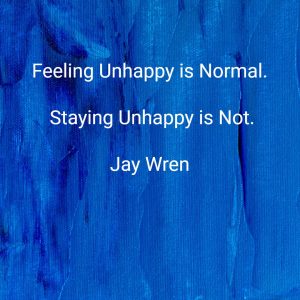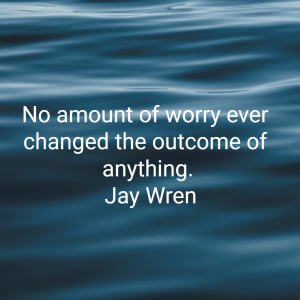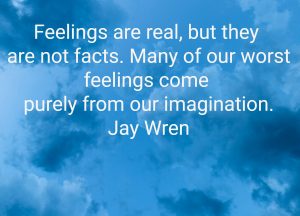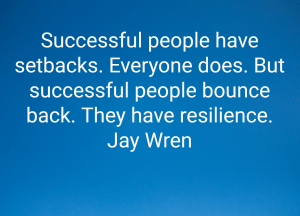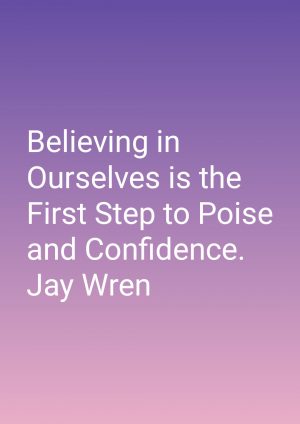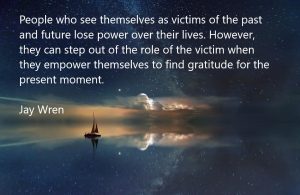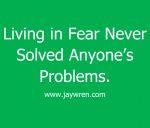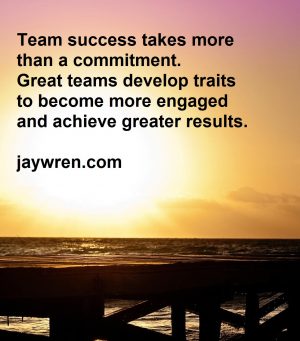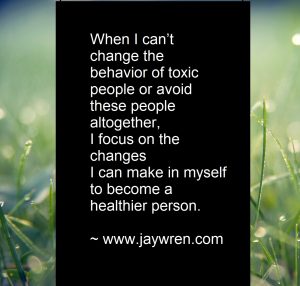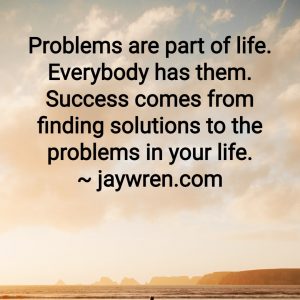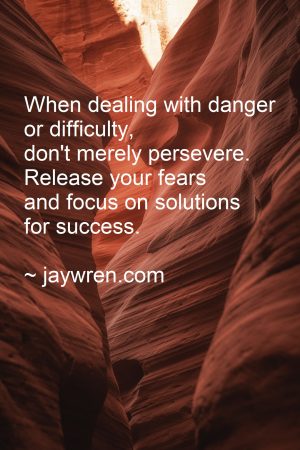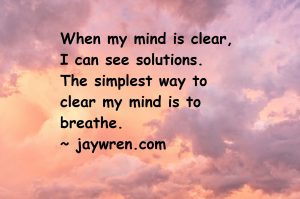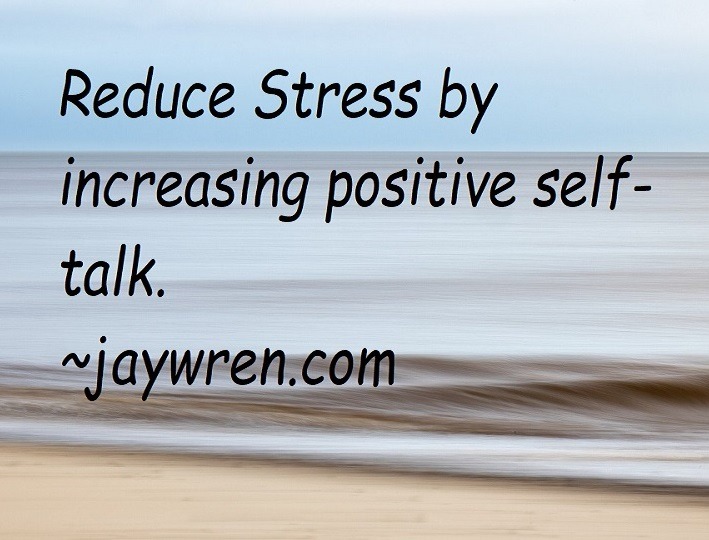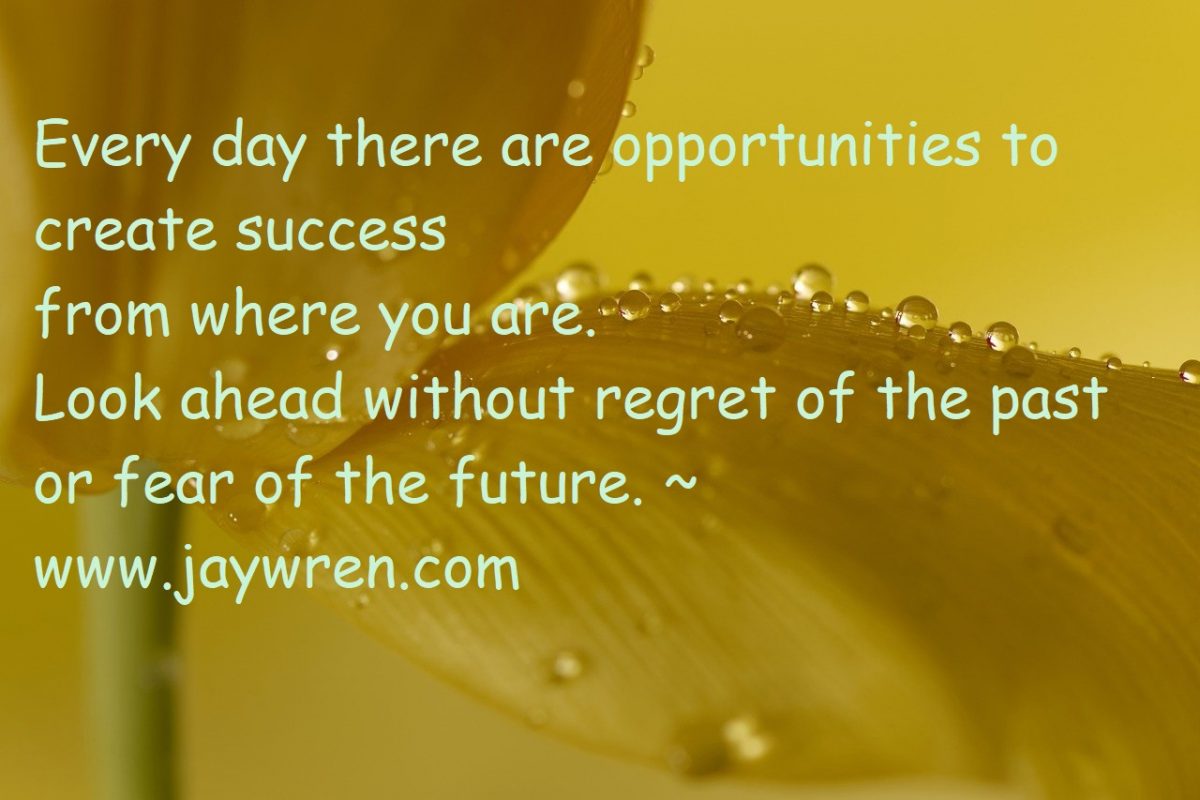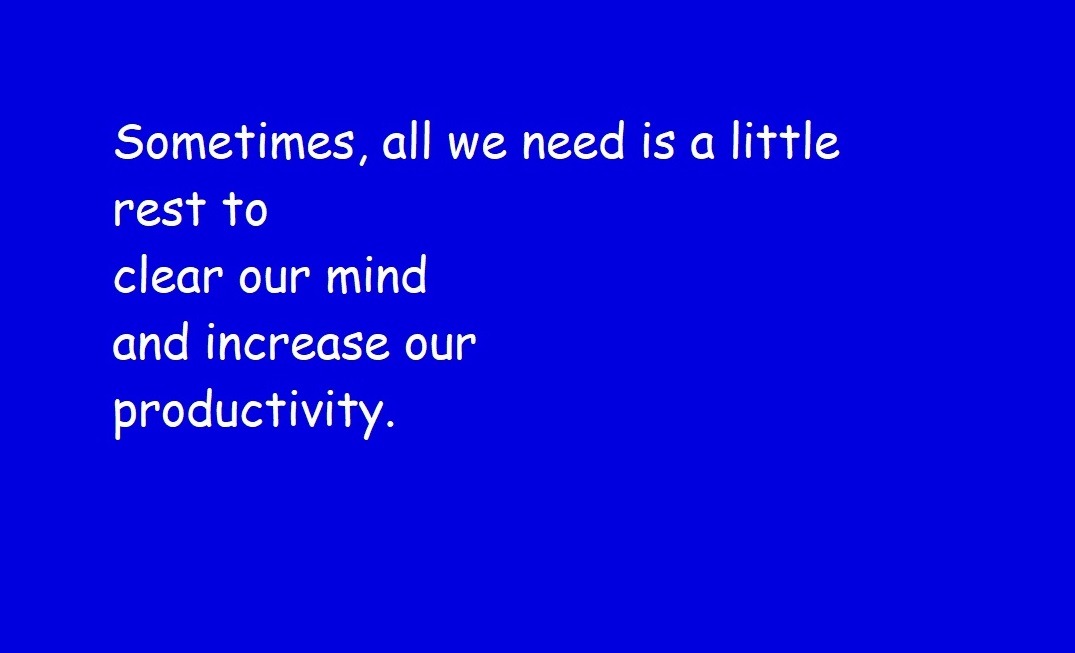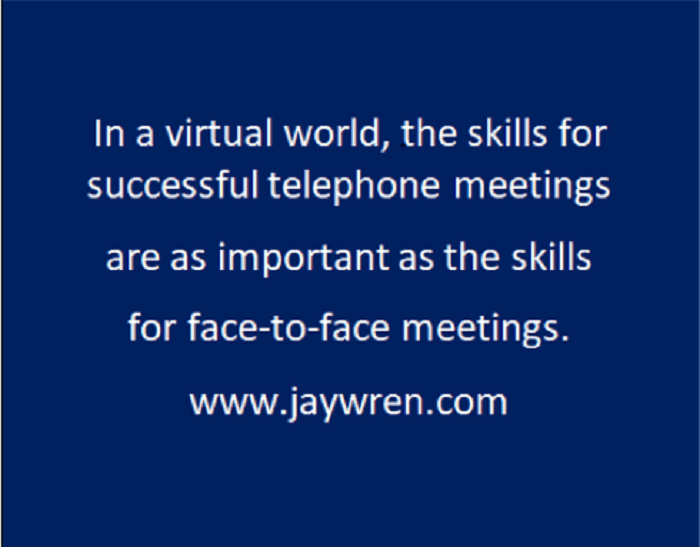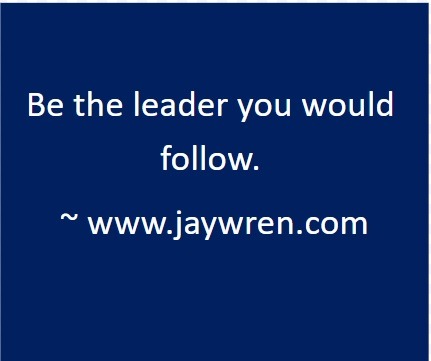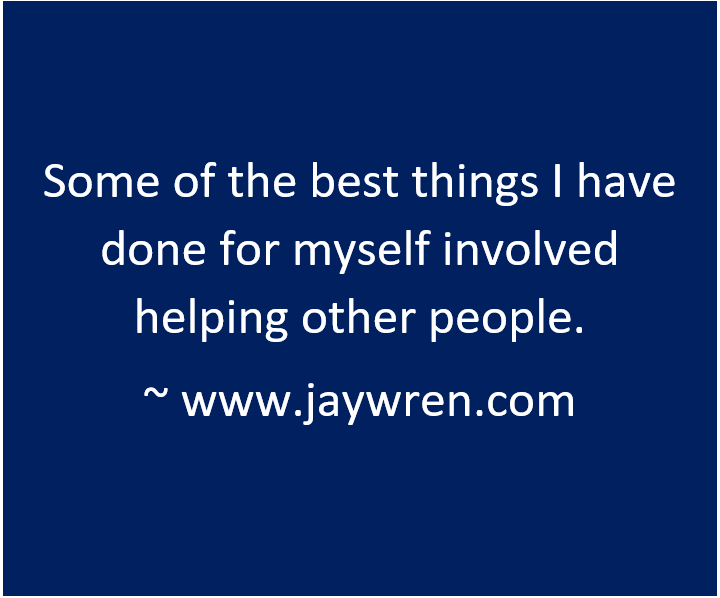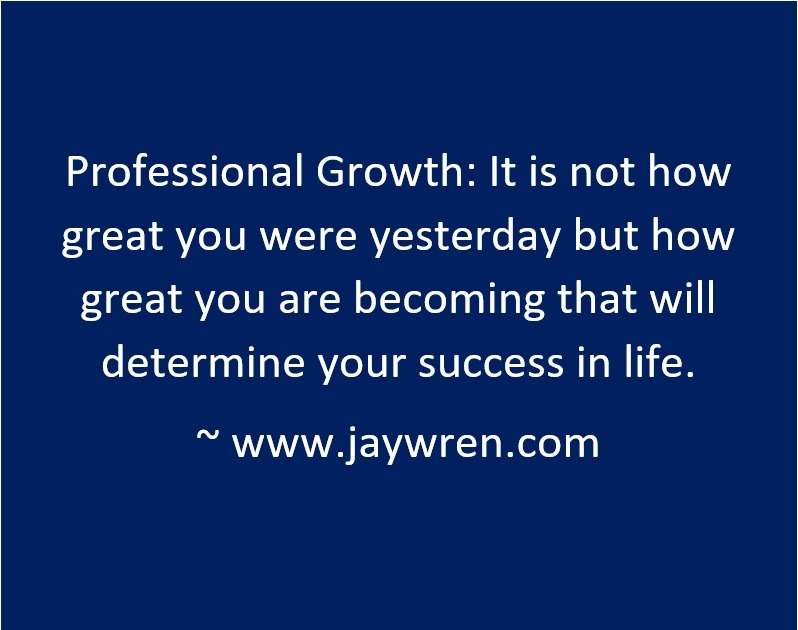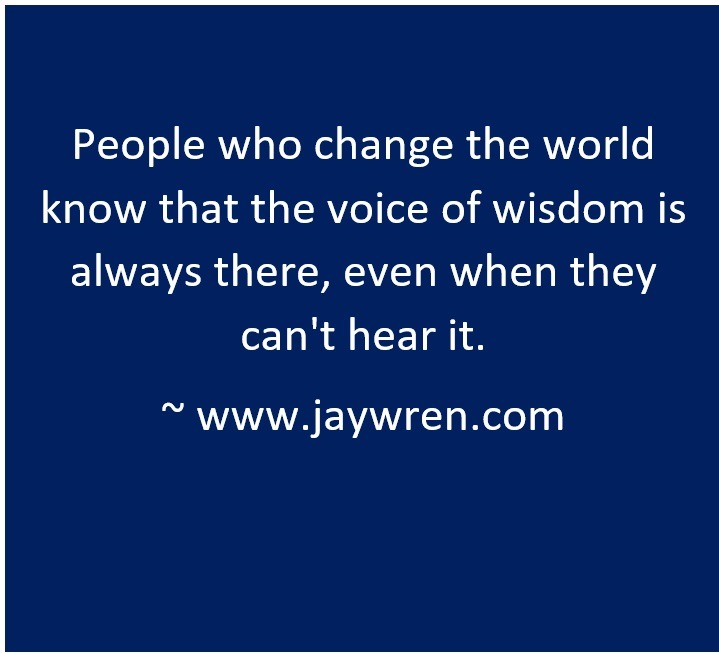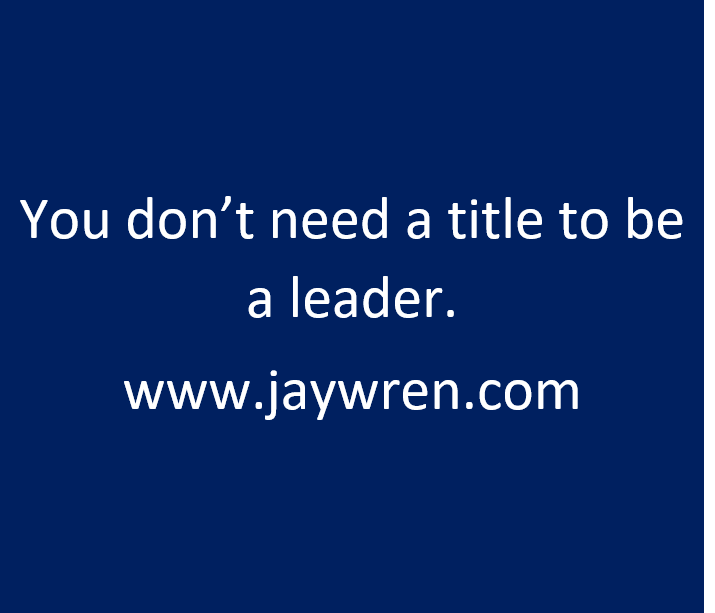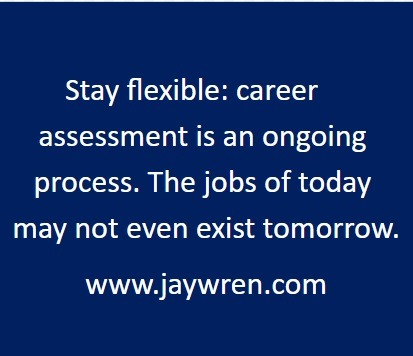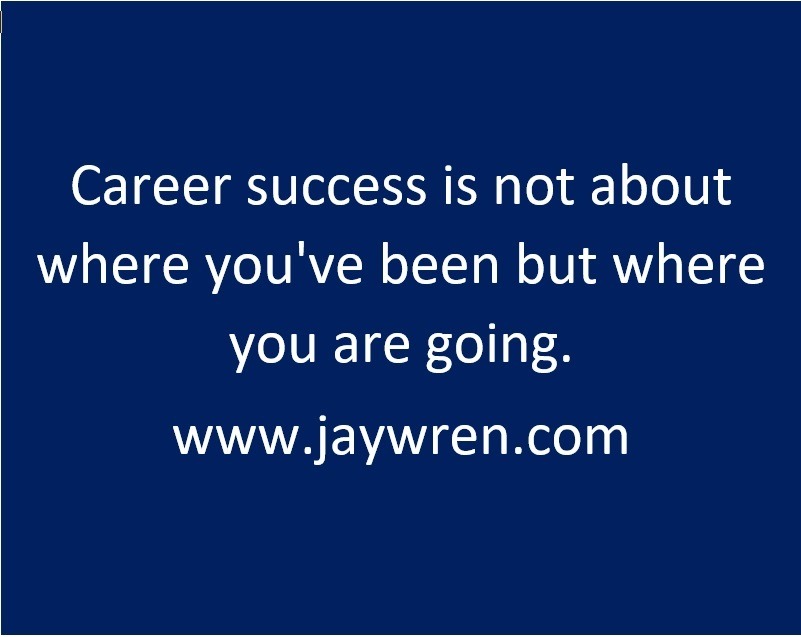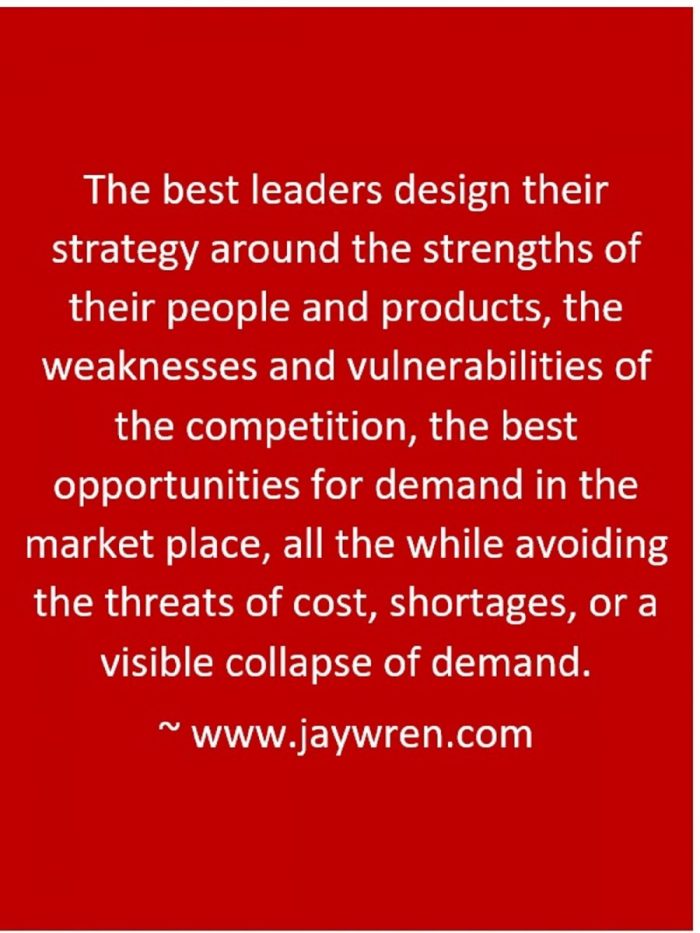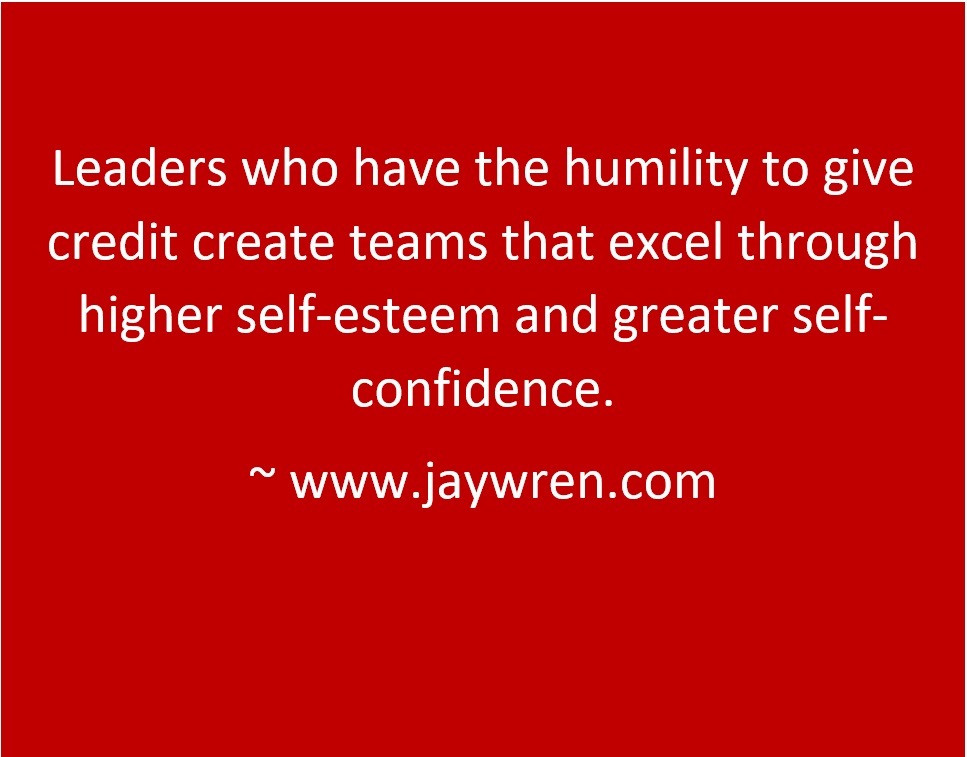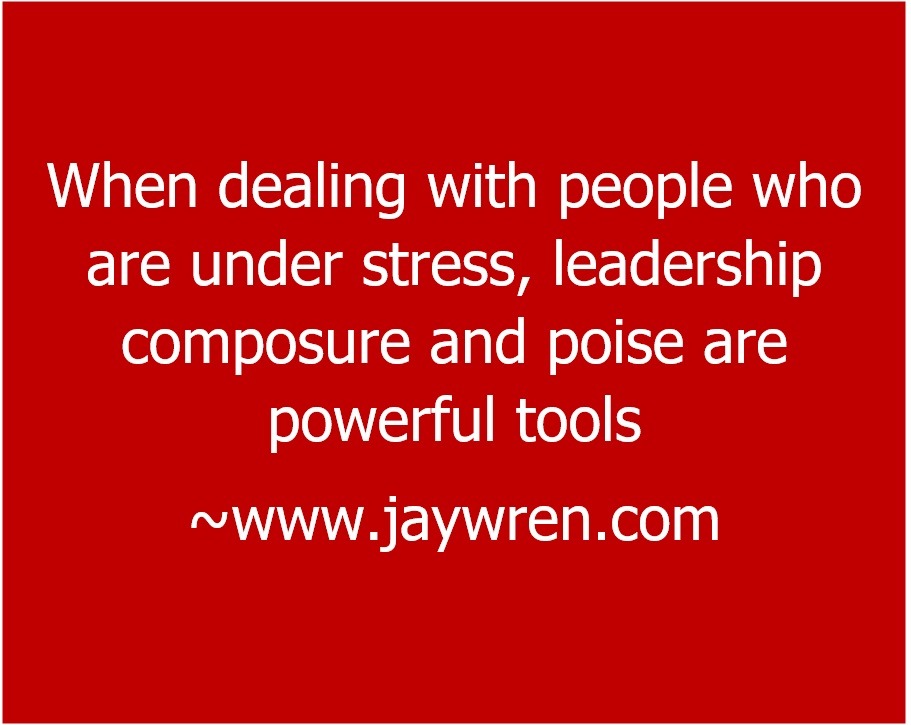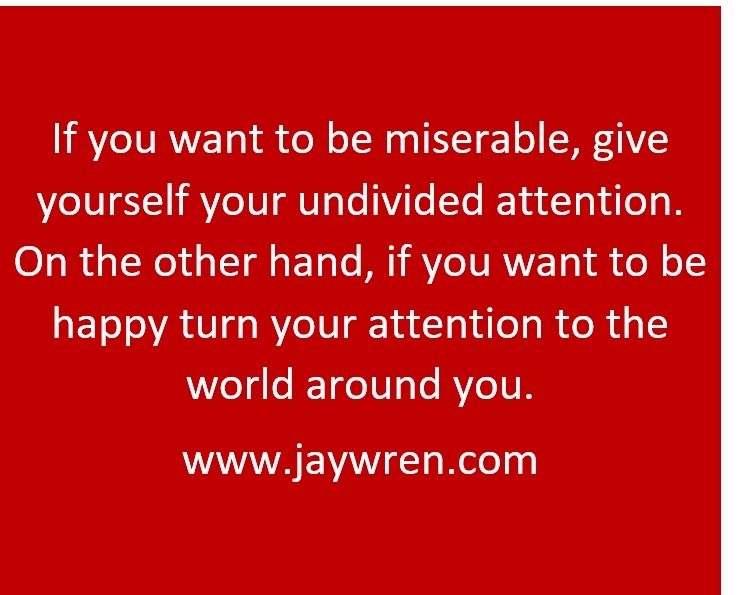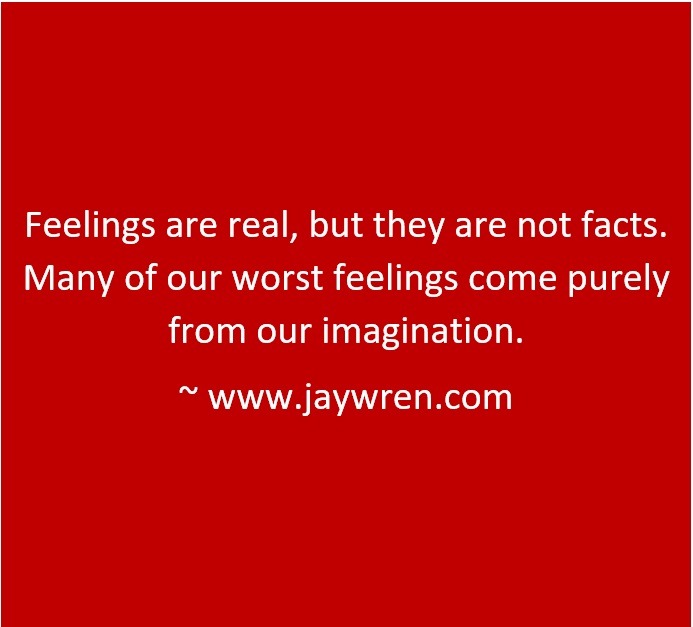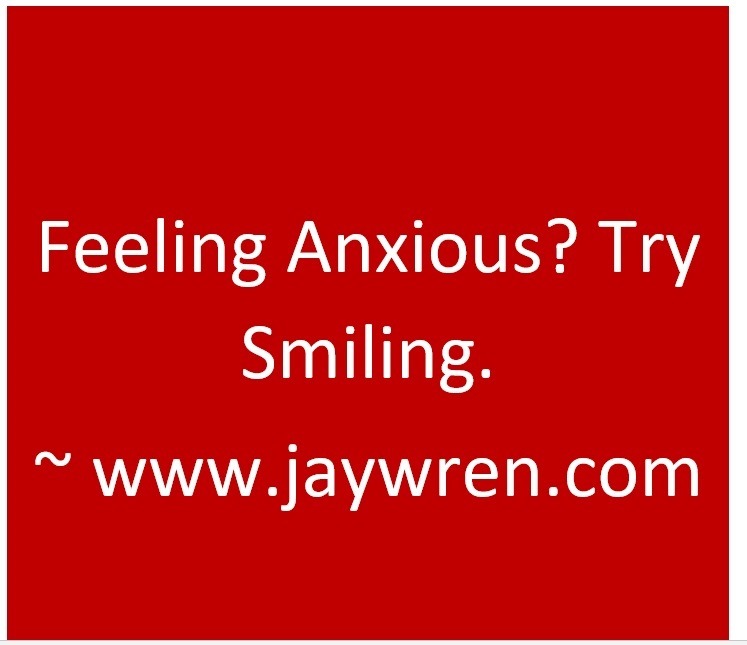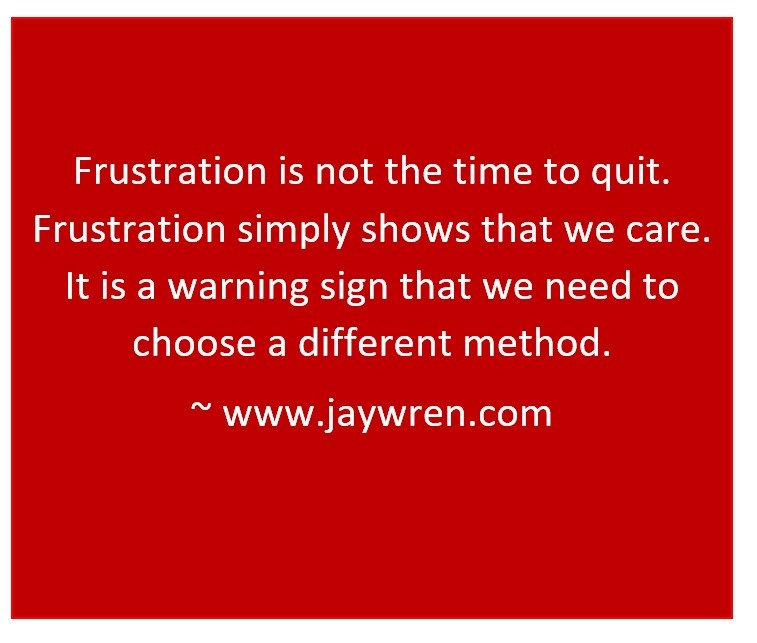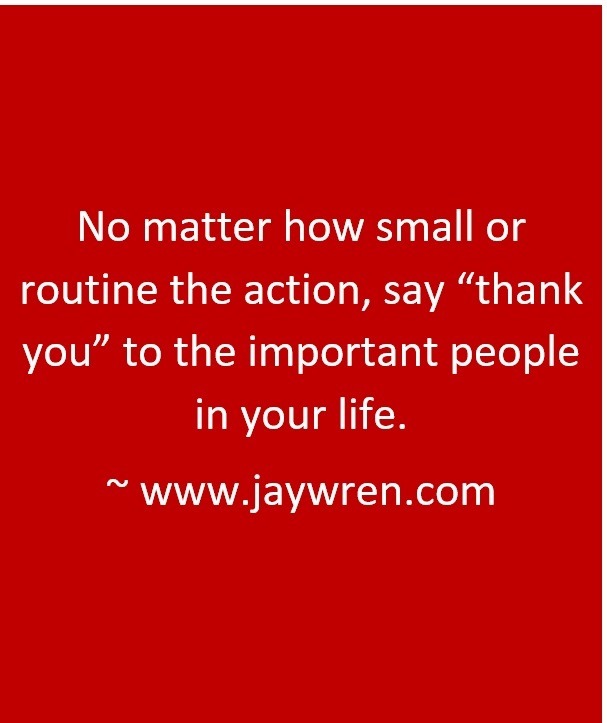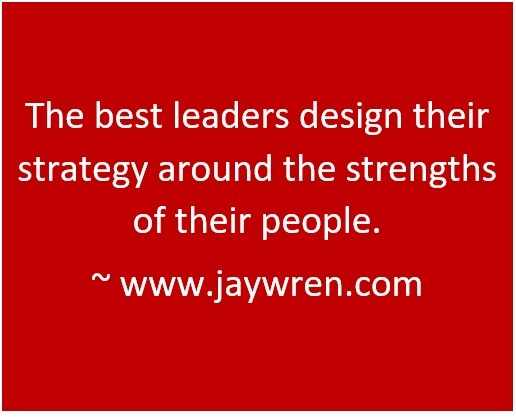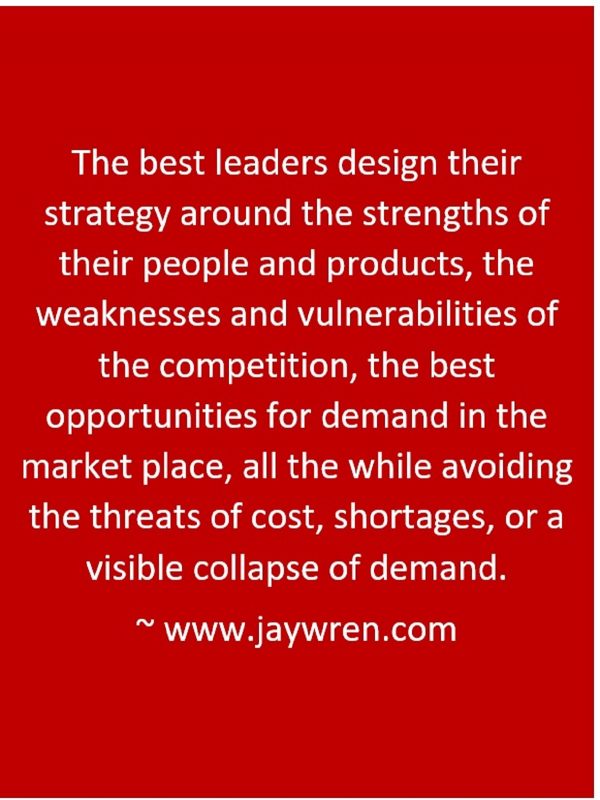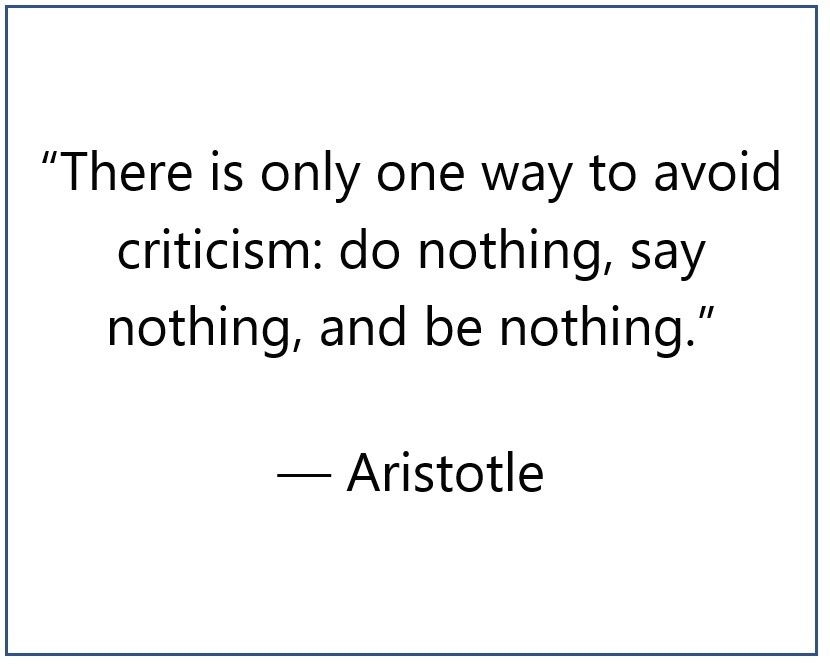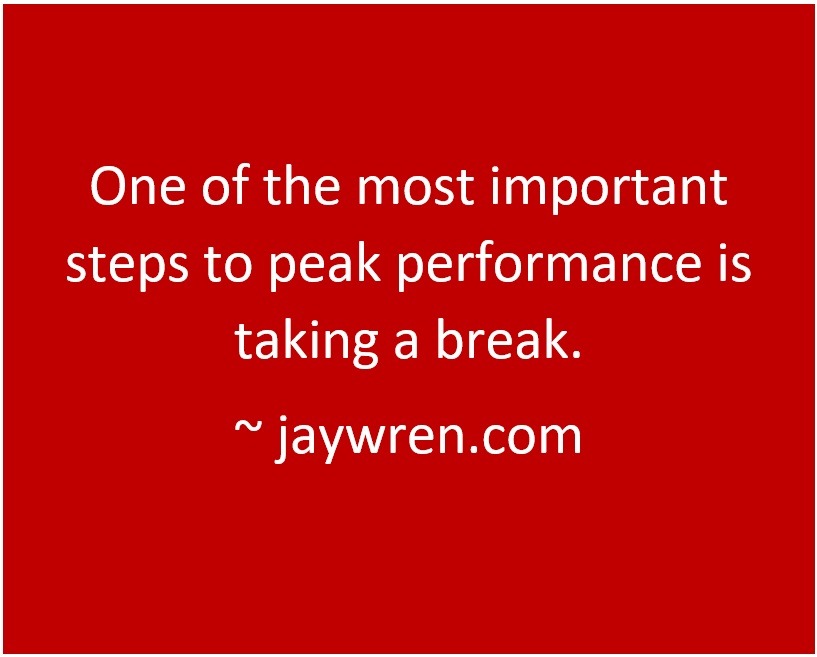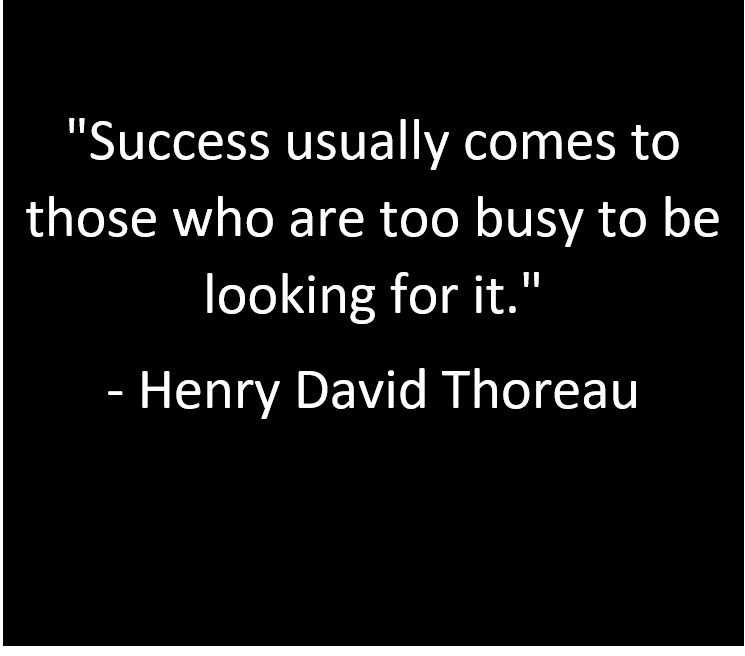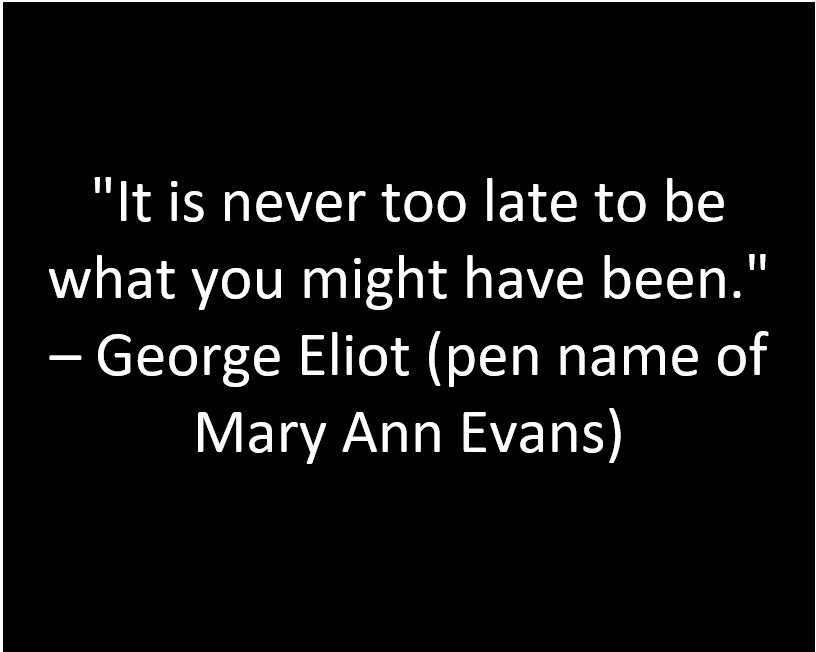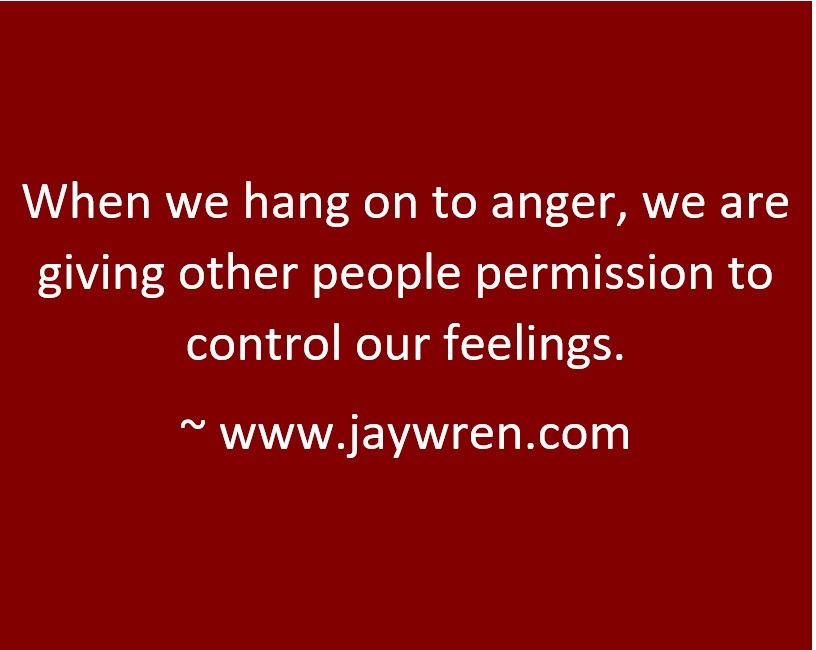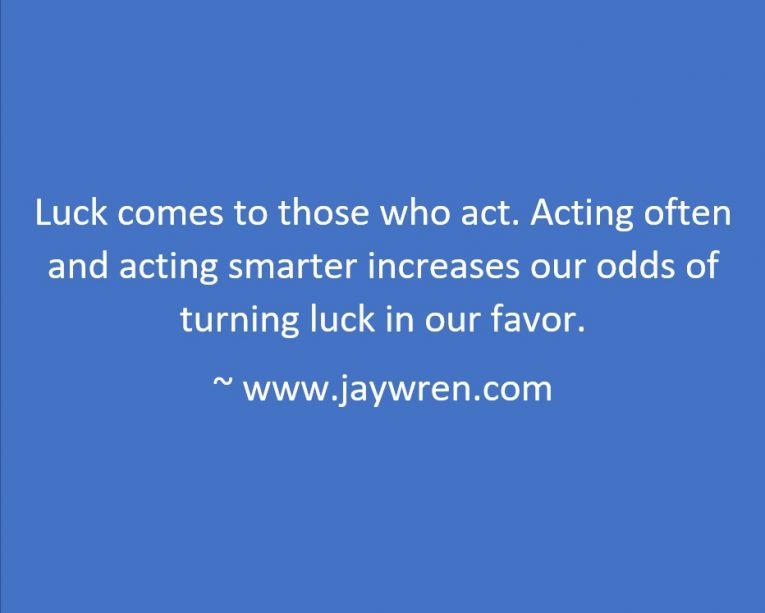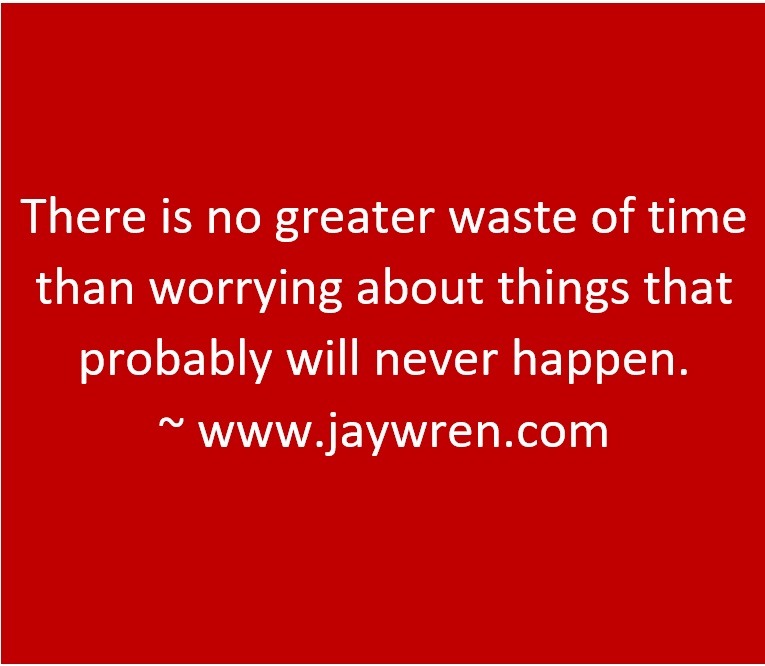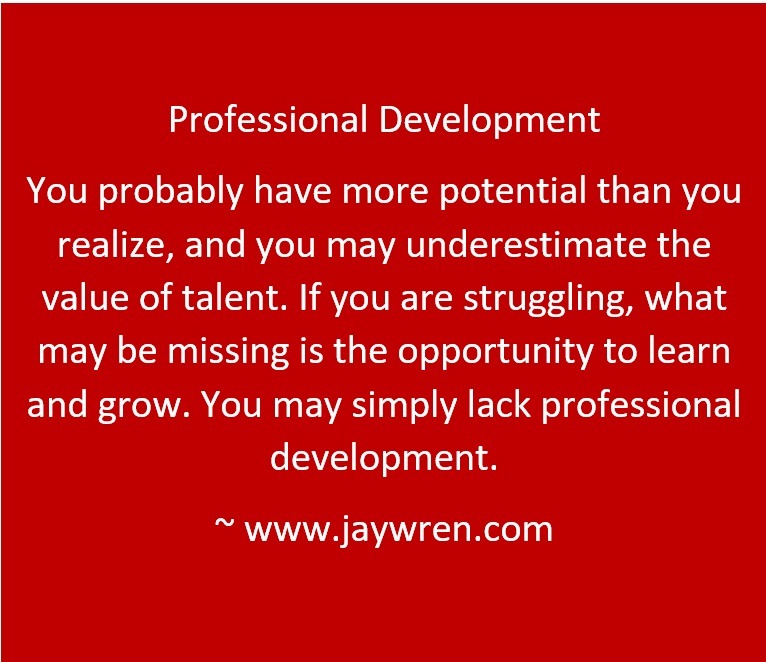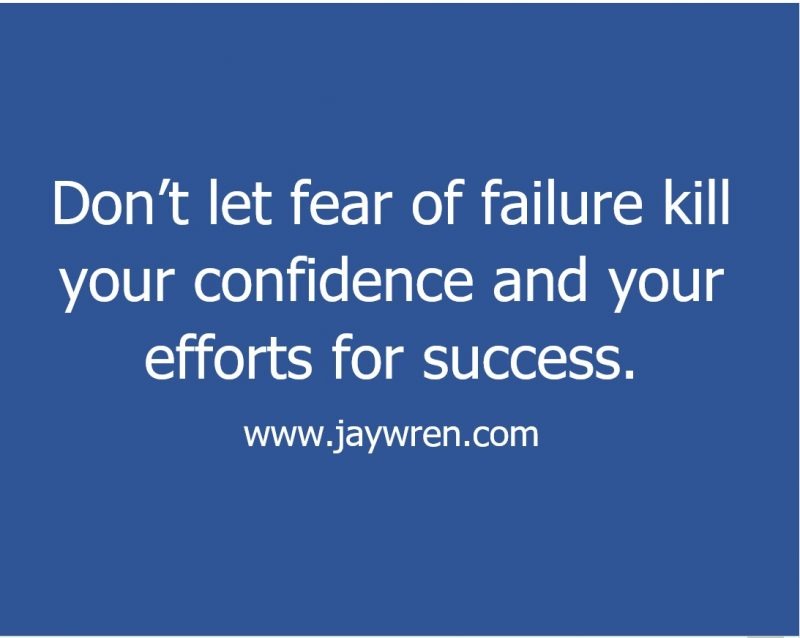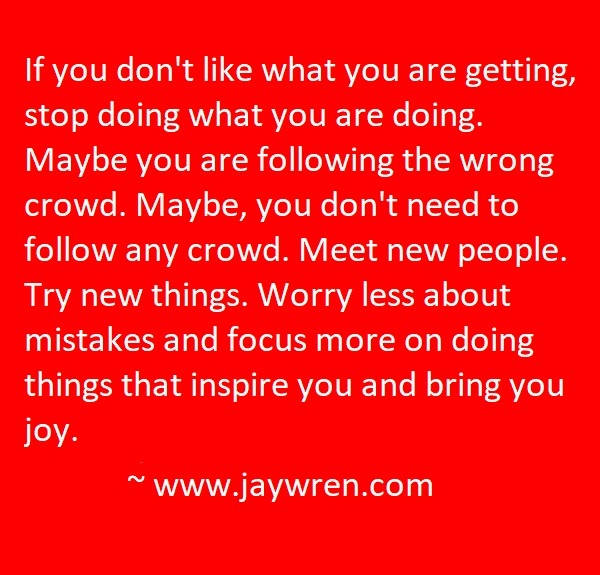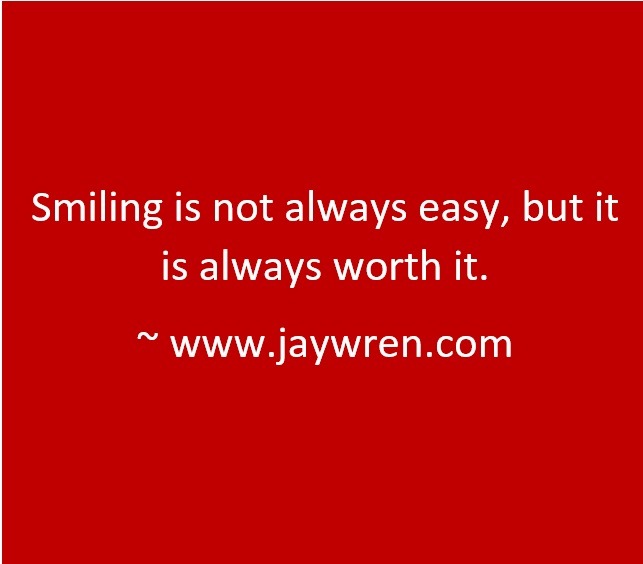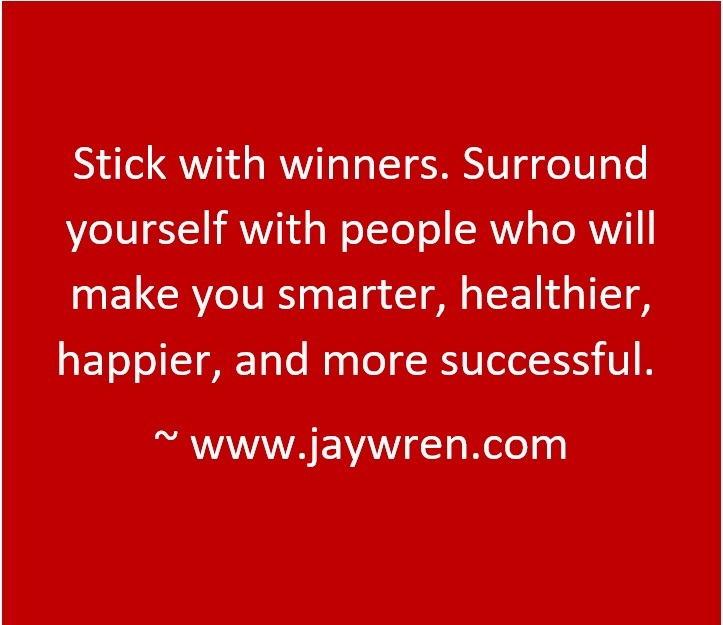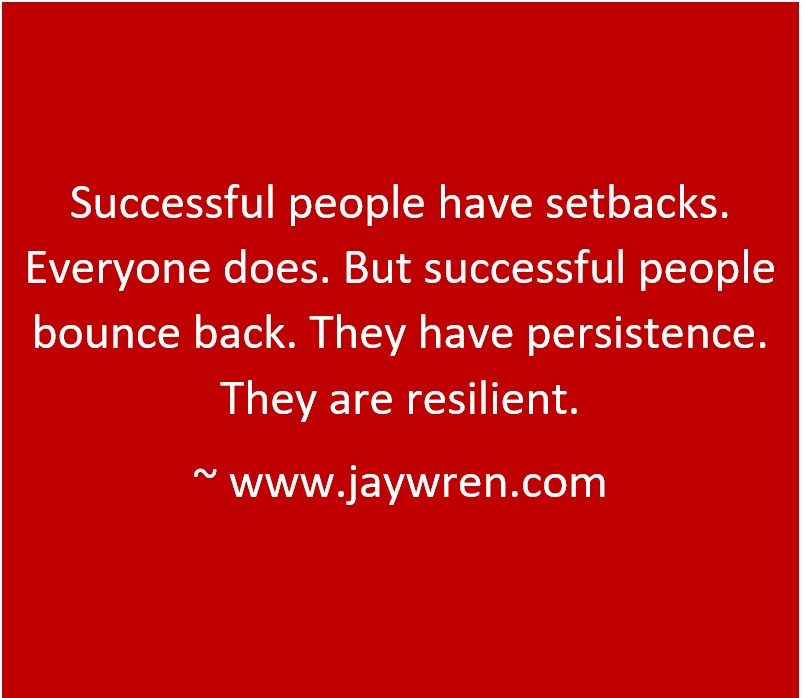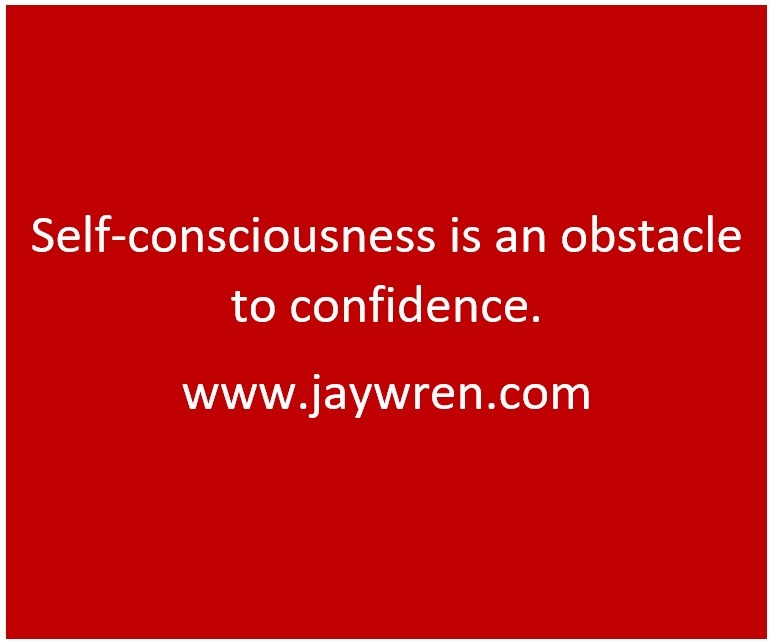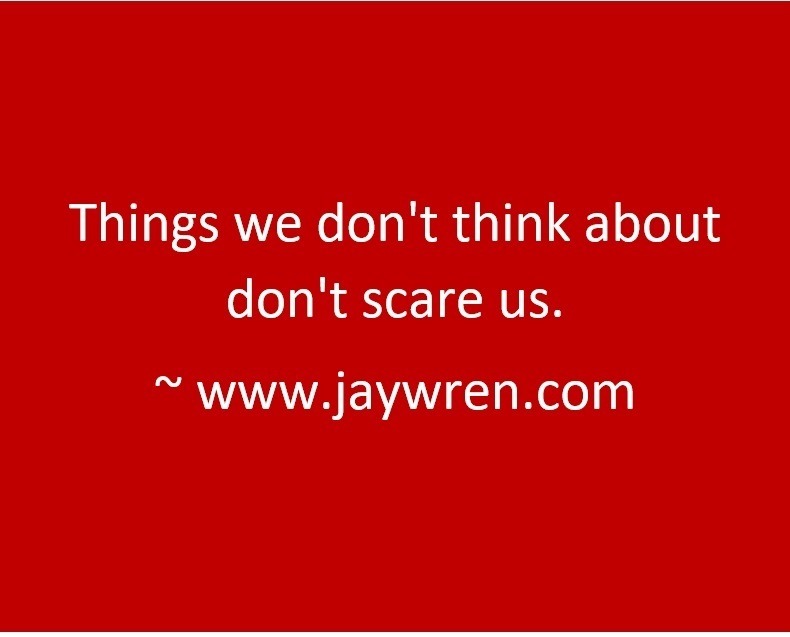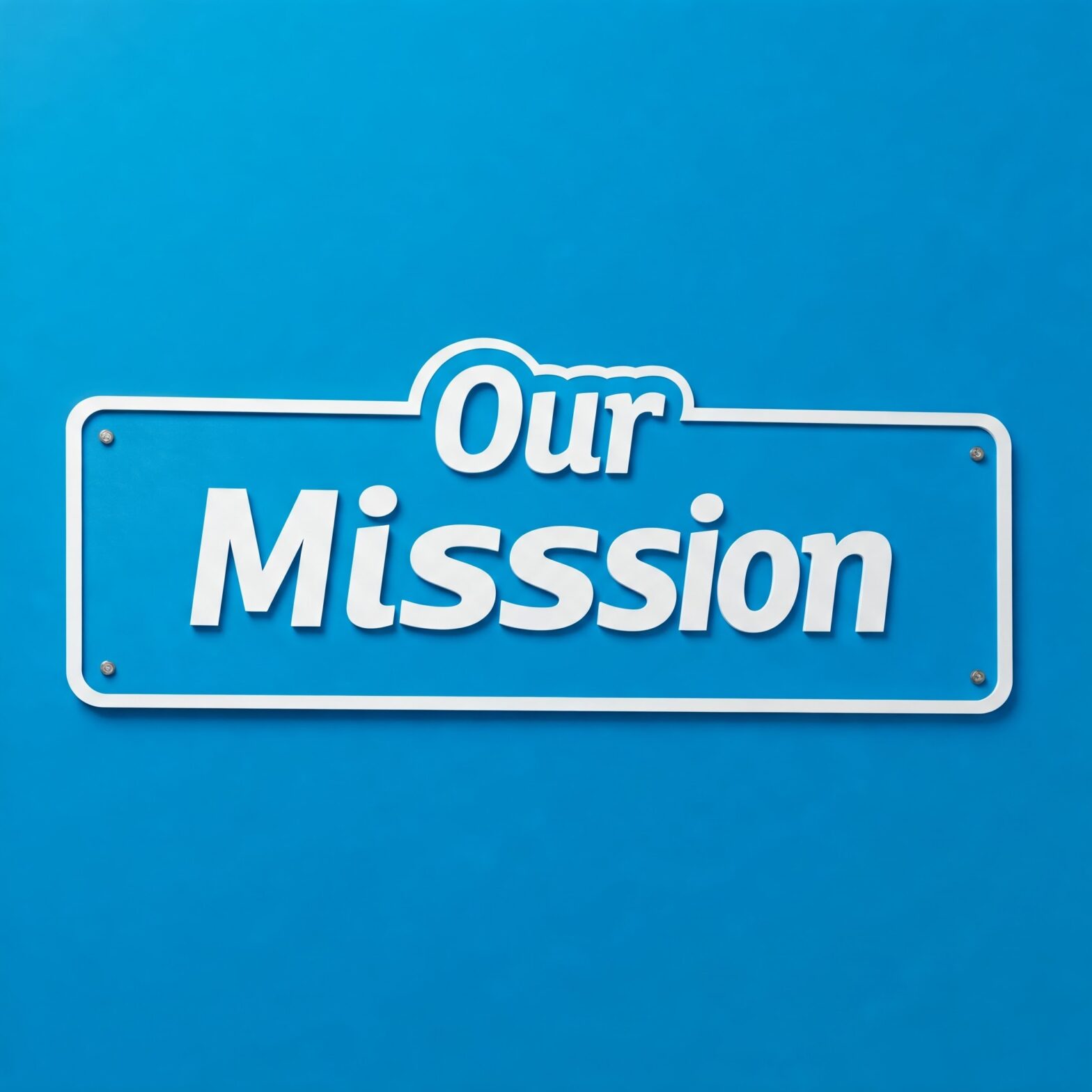Viral: on the Internet, when you comment on anything, good or bad, you give it attention, and attention is power. Photo by Tobias Rademacher on Unsplash
Viral
Viral: on the Internet, when you comment on anything, good or bad, you give it attention, and attention is power. ~ Jay Wren Photo by Tobias Rademacher on Unsplash
Guilt – A Painful Waste of Time
To be resilient, we must be able to forgive ourselves about our mistakes. Carrying around guilt lowers our self-esteem and confidence. Guilt does not help us correct mistakes. It only makes it more difficult to repair to damaged relationships. So, let go of guilt. If you made a mistake, do not repeat it. If you…… Continue reading Guilt – A Painful Waste of Time
Pause
When I feel frustrated, in doubt, or angry, stepping away from a situation gives me the opportunity to calm my emotions. The separation allows me to reduce the noise in my head. I think more clearly. I make better decisions. I can try to reduce tension between another person and me by saying things like…… Continue reading Pause
Comfortable Lies
On the other hand, when we are around people with different beliefs, the things that those people say, do, and write, threaten our beliefs. On the surface, we feel anger. Beneath the surface, we feel fear. Threats to our beliefs threaten our self-esteem. We do not feel good when people make us examine our beliefs.…… Continue reading Comfortable Lies
Critical Thinking
Confirmation bias is the emotional and mental experience that we have based on our beliefs. Unconsciously, we say to ourselves, “This information is true because it reinforces my beliefs.” On the other hand, we will unconsciously say to ourselves, “This information is false because it conflicts with my beliefs.” Different beliefs and ideologies between people…… Continue reading Critical Thinking
Planning – Updating Your Career Strategy
Book Excerpt: Best Jobs. Brightest Careers. Updating Your Career Strategy The Benefits of Updating Your Career Strategy: A great career plan is an opportunity map. Your strategy must be flexible. With an updated plan, you will discover new roads for opportunities to succeed. Moreover, students and professionals who have developed and follow their own career…… Continue reading Planning – Updating Your Career Strategy
Jay Wren on LinkedIn
Similarities
Our beliefs become hardwired in our minds. They control our thinking and our feelings about what other people say and do. Sometimes friendships fall apart because people develop new beliefs. Other times, people who have been friends realize over time that some of their beliefs have never been the same on some issues. However, if…… Continue reading Similarities
Choices
Do we have choices over the way that we feel and think? I believe that we do. Of course, I know that my day can change with the events that I experience. But what about the things that I choose to put in my mind? I can choose things that change how I respond mentally…… Continue reading Choices
Life is Good
Feeling grateful is a normal, healthy feeling about life. However, gratitude is not always the first feeling we have. But we can create feelings of gratitude by making the effort to think about the good things in our life. Photo by Aaron Burden on Unsplash
Have a Purpose
Have a purpose for the things you plan to do. Ask yourself questions like these: What do you want to accomplish? Who will benefit from your purpose? Will the purpose reward you for your time, effort, and money? Will your purpose lead you to even greater opportunities? Photo by Guille Álvarez on Unsplash
They Have a Purpose
Have a purpose for the things you plan to do. Ask yourself questions like these: What do you want to accomplish? Who will benefit from your purpose? Will the purpose reward you for your time, effort, and money? Will your purpose lead you to even greater opportunities? Photo by Guille Álvarez on Unsplash
Attitudes
Stick with winners. Surround yourself with people who will make you smarter, healthier, happier, and more successful. Spend time with supportive people. Good company does more than make life fun. People who encourage you build your confidence. Furthermore, these people can help you find solutions and succeed in tough times. Photo by James Day on Unsplash
Peace of Mind
The fear of the future is often more painful than experiencing the actual event. These fears cripple our mind and imagination. When we are afraid, we can take a deep breath. We can clear our head by getting into action. We can write about our fears, and we can discuss them with friends. Often all…… Continue reading Peace of Mind
Peace
In a material world, it is easy to think that peace of mind comes from getting the things we want. However, getting what we want often only leads to wanting more things. Even more painful, there is the anxiety of losing the things that we wanted so badly. So, what do we need to have…… Continue reading Peace
No Excuses
Authenticity and self-honesty are critical to success. You can’t solve a problem until you admit that that you have a problem. However much it may hurt, the first step to bouncing back from a mistake is to be honest, with absolutely no excuses, that you made a mistake Photo by Antoine Rault on Unsplash
Hurt Feelings
In sports, athletes and coaches decide whether an athlete should continue to play or stop and receive medical attention. Is the athlete hurt or injured. A common phrase in sports is “Rub some dirt on it.” Athletes just take their mind off the little pains in sports and get physically and mentally back into the…… Continue reading Hurt Feelings
Best Jobs. Brightest Careers. Top O’ The Menu
https://www.amazon.com/dp/B09SN8JBP5?ref_=pe_3052080_397514860&fbclid=IwAR1gNM8fLFsNaO3ydDaua3YQVZYJdPd_2UTnj3s9zOnbUjvtJGztoO9Qvkk The tools and systems thousands of people have used to find the best jobs and to build the brightest careers. You don’t have to do everything right to find success, but you do have to do the right things. This book will tell you how.
Authentic Leadership
Authentic leaders the kind of trust that build creates success within an organization. To be authentic, leaders must have the self-awareness, the self-honesty, and the humility to recognize when their own direction and actions are not in the best interest of the company. They have an open mind to receiving input from the people who…… Continue reading Authentic Leadership
Finding Opportunities
Are you finding new ways to build on your success? Innovation creates changes. Attitudes create changes. Economics creates changes. Mergers, acquisitions, and consolidations create changes. The unknowns will create changes that we can’t imagine. Changes eliminate opportunities for people who are not changing with industry. However, people who stay successful develop new skills and continue…… Continue reading Finding Opportunities
Heathly Reflection
Healthy Reflection: Caring about what other people think about you is normal. But you cannot control what other people think. Worrying about what other people think is a waste of time. https://www.jaywren.com/worry/ Photo Credit: Photo by Mitchell Orr on Unsplash
Trust Yourself
Are you holding yourself back? Trust yourself to become a powerful performer. Put together all the pieces to create success. Why shouldn’t you be the powerful performer that you want to become? Just turn the desire to become a power performer into doing the things that enable you to become that power performer. Photo by…… Continue reading Trust Yourself
How the Best Leaders Manage in a Crisis
Difficult managers use crisis as a management tool. Everything is serious. Everything is urgent. They shake everybody up. https://www.jaywren.com/the-power-and-failings-of-leadership/ https://www.jaywren.com/leadership-so-when-does-the-crisis-start/
For hiring managers, the chemistry of the job interview influences hiring decisions as the much as the skills of the job applicant.
For hiring managers, the chemistry of the job interview influences hiring decisions as the much as the skills of the job applicant. Think about it. The interviewer has read your resume. Before the applicant arrives, the hiring manager has seen the applicants qualifications. https://www.jaywren.com/interview-tips-the-chemistry-of-the-job-interview/
The People are the Company’s Greatest Assets
Knowledgeable, well-trained people are a company’s greatest asset. There is no game without the players. There are no goods or services without the people to create and deliver them. The value of a company increases as the result of the increase in the quality of the performance of its people. New products come from the…… Continue reading The People are the Company’s Greatest Assets
Great People
The Challenging Work of Selecting Great People As a recruiter who worked with wonderful human resources people and hiring managers, I know the challenges people face in making great hires. Over the years, I built a check-off list of traits I considered when making referrals. Using this list, I increased my placement to referral rate. …… Continue reading Great People
Choose Happiness
Happiness is easy when everything is going our way. Some people seem happy all the time. How can we be happy even when life is challenging? https://www.jaywren.com/happiness/
Life Challenges
Life’s challenges create pressure. I cannot always eliminate these challenges, but I can be smart about how I respond to them. Action I feel stressed when I put things off. To overcome procrastination, I simply agree to do one small thing. A common example is to go for a walk, I lace up my shoes.…… Continue reading Life Challenges
Worry Not
Worrying is Not Planning. When I am planning, I am actively engaged in the present moment. I am acting on things that I will do in the future. When I am worrying, I am just sticking pins in my brain with the idea that I am somehow seeking a solution.
Do Something to Eliminate Fear
If you want to change the subject in your head, do something. Call someone. Read anything: a book, a website, a magazine, whatever changes your thinking. Walk around the block. Turn on the television. Put on some music. Just do something. https://www.jaywren.com/act-to-find-joy-peace-and-success/
Freedom from Fear
Emotional Intelligence: Learning how to manage emotions is part of growing up. However, becoming aware that our feelings are making us dumber is not always easy. How do successful people deal with emotions to make better decisions? https://www.jaywren.com/emotional-intelligence/
Setbacks and Resilience
Successful people have setbacks. Everyone does. But successful people bounce back. They have resilience. ~ www.jaywren.com How is it that some people can overcome setbacks while other people can’t? Are there skills for resilience that everyone can learn? Five Obstacles to Resilience Fear Pride Confusion Procrastination Resentments Here are ways to overcome those five obstacles.…… Continue reading Setbacks and Resilience
Poise and Confidence
Poise is not always automatic. Nearly everyone feels uncertain and lacks poise from time-to-time. How do successful people restore their confidence and maintain their poise in challenging situations? https://www.jaywren.com/poise/
Gratitude and the Present Moment
People who see themselves as victims of the past and future lose power over their lives. However, they can step out of the role of the victim when they empower themselves to find gratitude for the present moment. I am grateful for the fact that I have the present moment to be effective at my…… Continue reading Gratitude and the Present Moment
Health
Your Health and Your Career Weight, Health, and Your Career Understanding the relationship of weight, health, and career success is important to your career. There are many articles on the subject. This article from Forbes on weight-based discrimination is a good one. “Is Your Weight Affecting Your Career?” Weight is image related and it is performance related.…… Continue reading Health
Master the Power of Overcoming Fear
Master the Power of Overcoming Fear The Power of Overcoming Fear: What is fear and why do we need it? When does it help us to survive? When does it turn on us and make us less effective? You can have power over fear. You can enjoy life more, and you can help other people…… Continue reading Master the Power of Overcoming Fear
A Smile
When you find yourself needing confidence, try smiling. https://www.jaywren.com/smiling
Best Teams
Team Success: What traits engage and build loyalty among team members? This article covers five of the traits I have found among successful organizations. photo credit: Image by Jill Wellington from Pixabay.com
Worry
https://www.jaywren.com/worrying/
Choosing Joy
Don’t Wait for Success to Be Happy. Happiness doesn’t happen in the future. Nothing exists in the future. Everything can only exist here and now. Becoming happy today gives us energy and brings joy to our lives. Image: @tyybone https://www.jaywren.com/dont-wait-for-success-to-be-happy/
Becoming a Healthier Person
Toxic people create stress that spreads throughout an organization. What are the skills that you can develop not only to survive but to grow around destructive personalities? https://www.jaywren.com/toxic-people/
Changes
Toxic people create stress that spreads throughout an organization. What are the skills that you can develop not only to survive but to grow around destructive personalities?
Act to Find Joy, Peace, and Success
Happiness and Joy don’t happen in the past or the future. Everything can only exist here and now.
Focus on Solutions
Problems are part of life. Success comes from finding solutions to the problems in your life. Everyone has problems. These problems lead to frustration. Additionally, frustrations make it easy to give up instead of acting on personal and career obstacles. We can become fearful and feel self-pity. Problems can make it easy for us to…… Continue reading Focus on Solutions
Solutions for Success
Solutions: Viewing the world as a series of problems is discouraging, even scary. https://www.jaywren.com/solutions/
A Clear Mind
Life’s challenges create pressure. I can’t always eliminate these challenges, but I can reduce the pressure by being smart about how I respond to them. https://www.jaywren.com/stress-reduction/
Reduce Stress
https://www.jaywren.com/stress-reduction
Join 23,000 Brilliant Readers. Follow Me on LinkedIn
Follow me on LinkedIn
Success Starts Today
Every day there are opportunities to create success from where you are. Look ahead without regret of the past or fear of the future. ~ www.jaywren.com https://www.jaywren.com/become-discovered/
Rest Increases Productivity
https://www.jaywren.com/winning-behavior/
Good Habits
Spring evening in Sacramento.
Creating a Positive Workplace
Focusing on a negative can distract people from the positive side of doing their job. It’s Not about Fruitcake I love fruitcake. Like everything else, fruitcake has people who love it and people who do not. Nearly two million fruitcakes are sold each year. I doubt that many people eat an entire fruitcake, since most…… Continue reading Creating a Positive Workplace
Join The Consumer Products Careers Group on LinkedIn
Virtual Meetings
https://www.jaywren.com/successful-telephone-meetings/
Be the Leader
https://www.jaywren.com/creating-future-leaders/
The Personal Benefits of Helping Others
Helping Others is Rewarding Some of the best things I have done for myself involved helping other people. Giving my time to help other people in turn benefited me mentally and emotionally. Helping other people increased my self-esteem as a person of value. I had activities to plan and anticipate. I got to know as many…… Continue reading The Personal Benefits of Helping Others
Professional Growth
Professional growth: things change so rapidly that you must develop the skills and learn the information that will continue to make you an asset to your customers or clients. Success Stories Learn from success stories. Learn about the changes people are making to become successful. Additionally, learn about the needs that people have for new…… Continue reading Professional Growth
People Who Change the World
https://www.jaywren.com/wisdom
Leaders without Titles
https://www.jaywren.com/trust/
Jobs of Tomorrow
https://www.jaywren.com/stay-flexible
Career Success
https://www.jaywren.com/stay-flexible/
Strategic Leadership
https://www.jaywren.com/building-trust/
Similique quis a libero enim quod corporis
Similique quis a libero enim quod corporis saepe quis. Perspiciatis velit quae consectetur consequatur eligendi. Omnis officiis quis culpa possimus exercitationem nesciunt commodi mollitia. Aut eum in est. In facere non. Corporis cumque sapiente deleniti placeat magnam sunt excepturi est sit. Corporis cumque sapiente Est aut sed eaque consequatur rerum nulla maxime tempore voluptate. Rerum…… Continue reading Similique quis a libero enim quod corporis
Similique quis a libero enim quod corporis
Similique quis a libero enim quod corporis saepe quis. Perspiciatis velit quae consectetur consequatur eligendi. Omnis officiis quis culpa possimus exercitationem nesciunt commodi mollitia. Aut eum in est. In facere non. Corporis cumque sapiente deleniti placeat magnam sunt excepturi est sit. Corporis cumque sapiente Est aut sed eaque consequatur rerum nulla maxime tempore voluptate. Rerum…… Continue reading Similique quis a libero enim quod corporis
Est aut sed eaque consequatur rerum
Similique quis a libero enim quod corporis saepe quis. Perspiciatis velit quae consectetur consequatur eligendi. Omnis officiis quis culpa possimus exercitationem nesciunt commodi mollitia. Aut eum in est. In facere non. Corporis cumque sapiente deleniti placeat magnam sunt excepturi est sit. Corporis cumque sapiente Est aut sed eaque consequatur rerum nulla maxime tempore voluptate. Rerum…… Continue reading Est aut sed eaque consequatur rerum
Perspiciatis velit quae consectetur conseq
Similique quis a libero enim quod corporis saepe quis. Perspiciatis velit quae consectetur consequatur eligendi. Omnis officiis quis culpa possimus exercitationem nesciunt commodi mollitia. Aut eum in est. In facere non. Corporis cumque sapiente deleniti placeat magnam sunt excepturi est sit. Corporis cumque sapiente Est aut sed eaque consequatur rerum nulla maxime tempore voluptate. Rerum…… Continue reading Perspiciatis velit quae consectetur conseq
Similique quis a libero enim quod corporis
Similique quis a libero enim quod corporis saepe quis. Perspiciatis velit quae consectetur consequatur eligendi. Omnis officiis quis culpa possimus exercitationem nesciunt commodi mollitia. Aut eum in est. In facere non. Corporis cumque sapiente deleniti placeat magnam sunt excepturi est sit. Corporis cumque sapiente Est aut sed eaque consequatur rerum nulla maxime tempore voluptate. Rerum…… Continue reading Similique quis a libero enim quod corporis
Maecenas porta neque vel quam interdum
Similique quis a libero enim quod corporis saepe quis. Perspiciatis velit quae consectetur consequatur eligendi. Omnis officiis quis culpa possimus exercitationem nesciunt commodi mollitia. Aut eum in est. In facere non. Corporis cumque sapiente deleniti placeat magnam sunt excepturi est sit. Corporis cumque sapiente Est aut sed eaque consequatur rerum nulla maxime tempore voluptate. Rerum…… Continue reading Maecenas porta neque vel quam interdum
Anxiety and Emotional Intelligence
Anxiety is an emotion not an event. https://www.jaywren.com/emotional-intelligence-2/
Making Great Hires
https://www.jaywren.com/people/
The Humility to Lead
https://www.jaywren.com/creating-leaders
Leadership Composure and Poise
https://www.jaywren.com/poise
Focus on Happiness
Feelings and Facts
Feeling Anxious?
https://www.jaywren.com/social-anxiety-is-it-killing-your-career
Managing Frustration
Say “Thank You”
Quotes on Hiring Great People
Hiring the Best People and Empowering Them to Excel: How do great leaders build great companies? Here are some of the things great leaders say. Lee Iacocca – Automobile Executive “I hire people brighter than me, and I get out of their way.” Bill Gates – Co-Founder Microsoft “The competition to hire the best will…… Continue reading Quotes on Hiring Great People
Strategy and People
Strategy
Criticism and Aristotle
Take Breaks
Take breaks: I can become so absorbed in my work that I don’t realize that I am too tired to be effective. However, not stopping to rest is counterproductive. When I am pushing myself mentally and physically, I may complete less work. Moreover, I may deal with situations poorly. Not taking breaks can lead to…… Continue reading Take Breaks
Self Honesty
Self-Honesty: There are two types of honesty. Cash register honesty is one. Certainly, the cash register is important for building trust and staying out of jail. However, self-honesty enables people to see their shortcomings. More importantly, self-honesty enables people to correct their mistakes and strengthen their weaknesses. To have self-honesty, we must be open-minded and have…… Continue reading Self Honesty
“Success usually comes to those who are too busy to be looking for it.” – Henry David Thoreau
https://www.jaywren.com/persistence-and-resilience
On Achieving Your Goals – George Eliot
Hanging on to Anger
https://www.jaywren.com/anger-management/
Luck and Action
https://www.jaywren.com/luck-needs-action/
Worrying is a Waste of Time
https://www.jaywren.com/worrying/
Continuing Professional Development: 5 Elements for Continued Growth
Continuing Professional Development and the 5 Elements of Learning. If you want to become a power performer, you probably have more potential than you realize, and you may underestimate the value of talent. If you are struggling, what may be missing is the opportunity to learn and grow. You are lacking professional development. Advisors Nearly…… Continue reading Continuing Professional Development: 5 Elements for Continued Growth
Freedom from Fear of Failure
Finding Joy in Life
If you don’t like what you are getting, stop doing what you are doing. Maybe you are following the wrong crowd. Maybe, you don’t need to follow any crowd. Meet new people. Try new things. Worry less about mistakes and focus more on doing things that inspire you and bring you joy. ~ www.jaywren.com
Smiling
Stick with Winners For Personal and Professional Success
Stick with winners. Surround yourself with people who will make you smarter, healthier, happier, and more successful. Personal and Professional Life In your personal and professional life, surround yourself with winners. Learning how these people have become successful and remain successful can help you learn how to build success in your own personal and professional…… Continue reading Stick with Winners For Personal and Professional Success
Persistence and Resilience: Empowered for Success
Successful people have setbacks. Everyone does. But successful people bounce back. They have persistence. They are resilient. ~ www.jaywren.com Do you have the qualities of persistence and resilience? If not, how can you develop them? With persistence, great sports teams come from behind to win the game. Great inventors with persistence work through research and…… Continue reading Persistence and Resilience: Empowered for Success
Jay Wren – The World’s Noblest Headhunter
During my career as a corporate recruiter, I conducted recruiting assignments for over one hundred companies. The success of my referrals often established the profile my clients used for future hires. At the same time, I helped thousands of people build more successful careers. “Building a successful career is a lifetime process. My book, “Best…… Continue reading Jay Wren – The World’s Noblest Headhunter
Self-Consciousness
Self-consciousness is an obstacle to confidence. When I lack confidence, I am focusing on myself. Loss of Confidence When I lack confidence, I am focusing on myself. I have a heightened feeling of uncertainty about my abilities and about my acceptability. Confidence, for me, comes from focusing on my activity and my surroundings: the people…… Continue reading Self-Consciousness
How to Stop Scaring Ourselves with Our Thinking
Things we don’t think about don’t scare us. ~ www.jaywren.com Who doesn’t have days when we worry about things going badly? We want things and worry that we will not get them. Or, we have things and worry that we will lose them. Living in fear of what might happen is pointless and painful. The…… Continue reading How to Stop Scaring Ourselves with Our Thinking
Our Mission
OUR PURPOSE AND MISSION The purpose of our company is to provide career solutions for the CPG Industry. We want to help you help you find the right job or to help you find the right person if you are looking to hire someone. INDUSTRY EXPERTS Secondarily, we provide information to help you stay informed…… Continue reading Our Mission
Creating Relationships with Influencers
Your network is your sphere of influence. ~ www.jaywren.com One powerful way to gain recognition is to have influential people write or talk about you. If you know people in any form of media, consider whether those people might help you gain recognition. A simple technique that I used at one time was to have…… Continue reading Creating Relationships with Influencers
